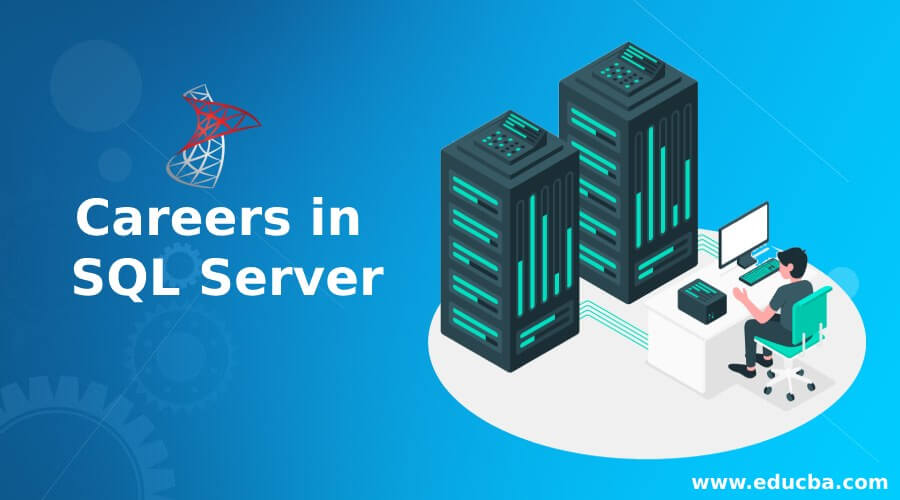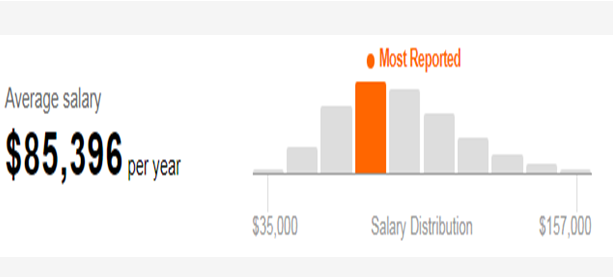Updated June 16, 2023
Introduction to Careers in SQL Server
To make a career in SQL server, the basic requirements for a person is to have an educational qualification of a degree in computer or mathematics branch, along with good knowledge of programming languages to work on SQL programming. Different roles are available in SQL Server, such as DBA or Database Administrator, DS or Data Scientist, BI Admin or Business Intelligence Administrator, and DA or Data Analyst. Like any other job in technology, these roles also fall high in terms of compensation.
Careers in SQL Server are vast and have many concepts and theories. Any aspirant who would like to make a career with SQL should master all the essential concepts and get a better understanding of creating queries. Few are the vital skills that one needs to acquire before starting a career in SQL.
- Become skilled in a language like C++ or Java before SQL
- Create New Stuff and Get More Confidence
- Learn How to Secure Your Code
Education
Education is an important phase for anybody to pursue their ambitions. We should be grateful that technology has taken us to the next level. Suppose there is any reasonable use of technology. In that case, it is that the means of learning have not only become accessible to almost everyone but also knowledge sharing/teaching from experts, resulting in a glorious outcome. Methods such as e-learning already made a significant impact concerning this aspect.
And thus, with this grand scope of learning, it is high time for educational institutions to focus on the development and deployment of database applications, from E-learning and student assessment applications to tuition payment processing systems and IT infrastructure applications.
At the same time, all schools and universities under constant budget pressure must find a cost-effective solution that frees up funding for other high-priority projects. MySQL and SQL are proven and cost-effective databases educational institutions use to automate many academic, administrative, and teaching processes. They are also used in the curriculum by scientists in research institutions.
Career Path in SQL Server
This is a tricky phase for any ambitious person who loves SQL and is at a beginner level, as numerous notable programming languages are on the market. Hence we need to get some basics right. SQL is a specialized language designed to work with databases and given the rise in popularity of data-intensive fields like Big Data and machine learning. The demand for this technology is massive in the market as every syndicate functions with the help of data. So, the aspirant has to know their skills and strengths and act upon them accordingly to choose which section of the knowledge area is more productive concerning their career.
In this article, we try to give the readers an idea as to what sort of critical options are available under the technology:
Database Administrator/ Developer
A “Database Administrator (DBA)” holds a specific set of skills that can design, implement and maintain a database, whereas a “Database Developer“ is responsible for supervising the database design and implementation of databases for various applications.
Data Scientist
This is the latest profession that deals majorly with medicine, telecom, politics, etc. and is closely related to Machine Learning, Data Mining, Big Data, and Databases. An objective of this role is to analyze, predict, and collect data to improve the business for the syndicate.
BI Developer/Administrator
The role of the BI Administrator is to run the ETL processes, create backups, etc. BI Administrator also holds responsibility for the security & maintenance of the environment, whereas the role of BI Developer is related to Data Warehousing, reporting, and data transformations.
Data Analyst
A Data Analyst analyzes data, conducts life cycle analysis, and creates reports and KPIs, which in turn will be helpful for organizations to make better business decisions. They also monitor performance and quality control plans to identify progress.
Other significant roles concerning SQL Server are ETL Developer, SQL Server Writer, Big Data Expert, and Business Analyst. The positions in this area rely on organizational needs.
Salary
Over the years, a career with SQL knowledge has been popular among the masses, and many people are hence attracted to this path.
According to Indeed.com, there were more SQL jobs than any other programming language type in 2016. Besting the big-name tools like Java and PHP, it’s evident that knowing SQL can bring you serious hiring potential. What’s more, the national average salary for SQL programmers is $70,000
The average salary for a SQL Developer is $85,396 annually in the United States. Salary estimates are based on 15,030 salaries submitted anonymously to Indeed by SQL Developer employees and users. The typical tenure for a SQL Developer is less than one year.
In order to excel in the competition, having proper SQL certifications in your armory is important, which will help you get your foot in the door and one step closer to earning a high-level salary in the field.
Conclusion
All this boggles down to the point where it is entirely up to the individual to choose what sort of career growth he is aiming towards as there are millions of Careers in SQL Server databases, and to work on these databases; many technological engineers are appointed every day. With the help of the above-listed career directory (CAREER PATH), it only becomes simple for any individual to choose the path matching his/her skill set.
Recommended Articles
We hope that this EDUCBA information on “Careers in SQL Server” was beneficial to you. You can view EDUCBA’s recommended articles for more information.




